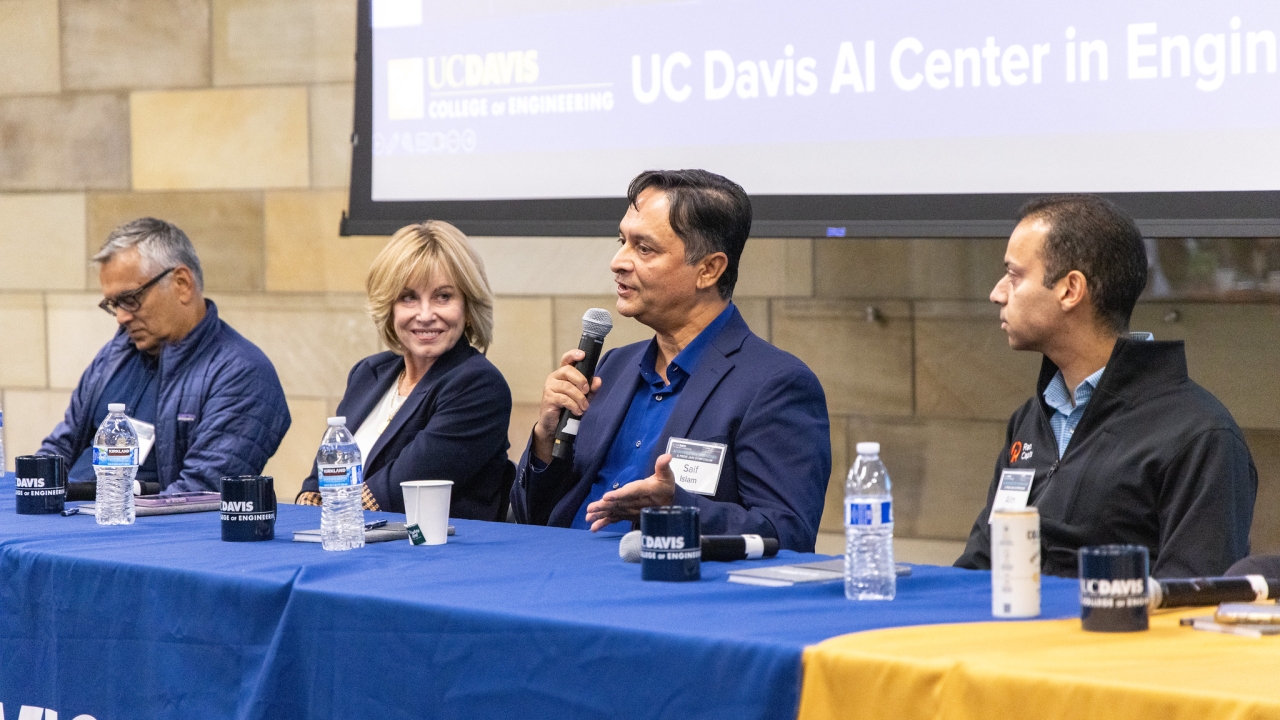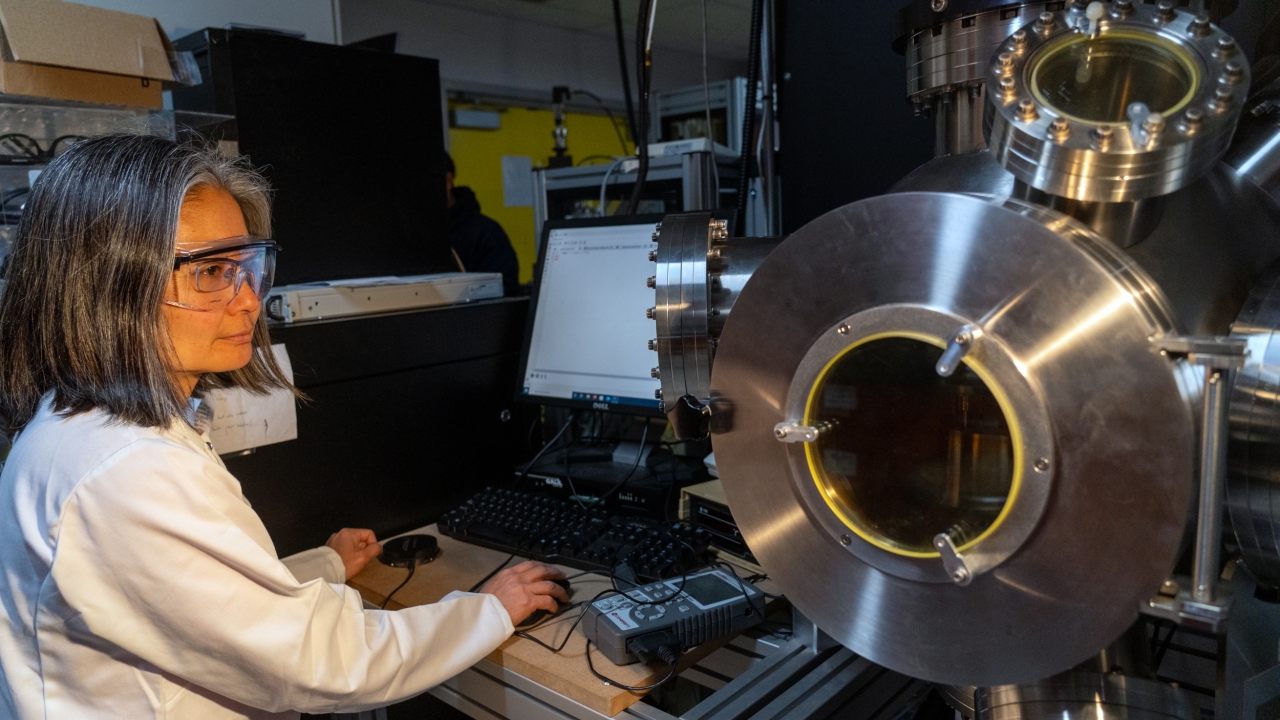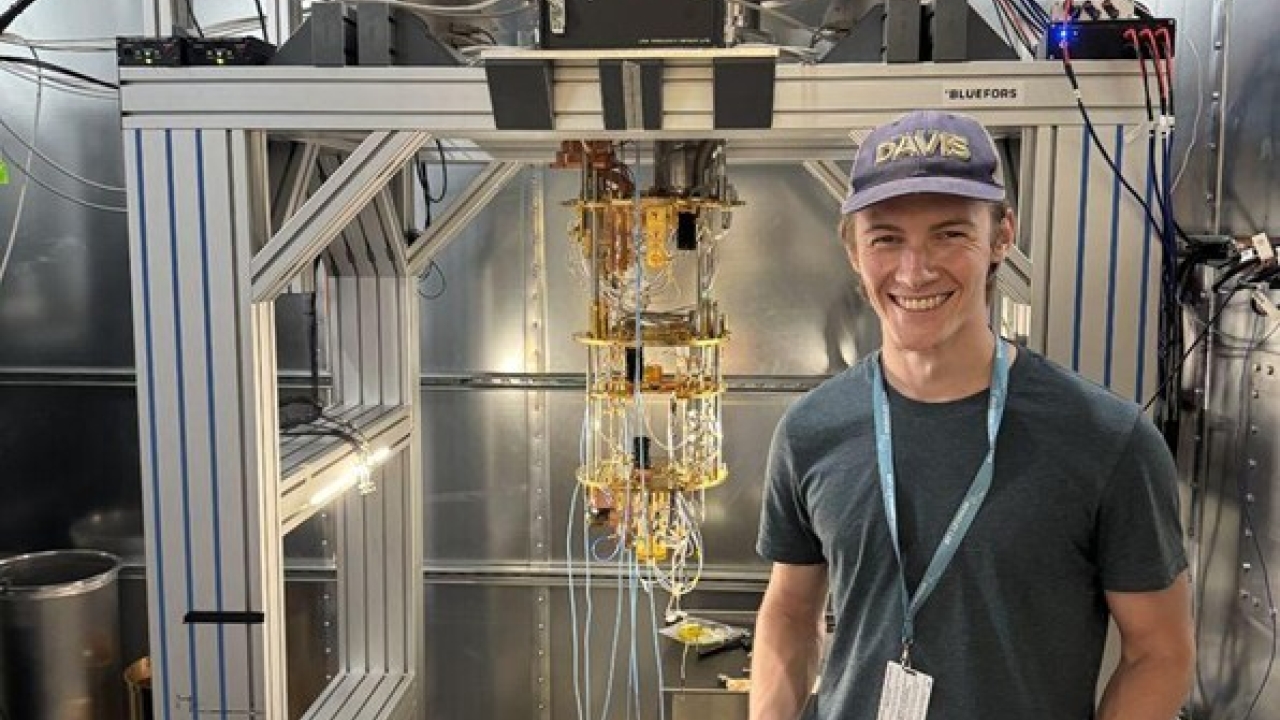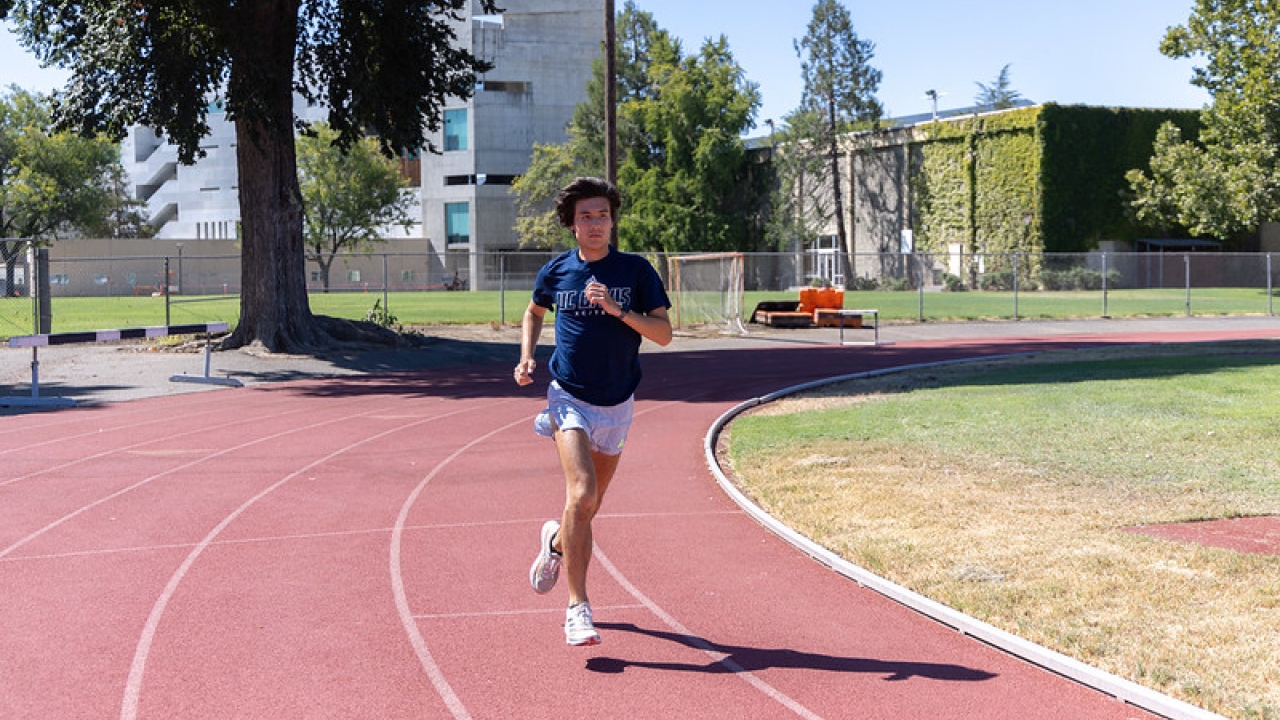
Beyond the Comfort Zone
Graduate student Zachary Graeber runs toward progress in racing and research
Zachary Graeber is going the distance — literally.
As a student athlete at the University of California, Davis, competing in cross country and distance events in track and field, Graeber has logged more than 10,000 miles in his first six seasons, with plans to cover much more ground.
In his academic life, Graeber is pursuing his Master of Science degree in computer science, after completing his undergraduate degree in computer science at UC Davis in only two years.
As he embarks on his first foray into research and the start of the cross country season, Graeber is gearing up to tackle new challenges and bring his best to the track and the lab.
Finding His Stride
In high school, Graeber was “more of a track guy,” running medium-distance races like the 1600- and 3200-meter races. Since running in college, he has improved his distance-running skills and become a true competitor in cross country.
At UC Davis, Graeber competes in the 1500-meter and 5-kilometer races for track and the 8-kilometer and 10-kilometer races for cross country. Since high school, he has increased his pace significantly, going from running a 5-kilometer race at a 5:09 minute per mile pace and now runs an 8-kilometer race at a 5:03 minute per mile pace.
“Transitioning to the 8K and 10K was difficult because it was much longer than I had competitively raced before. It requires much more endurance than I had as a high schooler,” said Graeber. “To improve my distance skills, I began increasing my mileage and doing longer workouts.”
While pursuing his undergraduate degree, Graeber had to figure out how to balance classes and practice, which proved to be difficult, especially since he trains year-round. For instance, to gear up for the coming season, which kicks off Aug. 29, Graeber and the rest of the UC Davis cross country team spent a month this summer training for high-altitude courses in Big Bear.
“Even during the off-season, we still have to be really focused on our sport,” said Graeber. “We have to spend time at practice, but we also have to be more conscious than the average person about going to bed earlier so we can get fully rested, let our bodies recover. I have to be aware of my time.”
Now, the looser structure of graduate school allows a little more leniency in his schedule.
“This year, I’m going to take one more class, and from there I’ll be focused on my own research,” said Graeber. “I just really like how this program gives me so much flexibility to explore what I’m truly interested in.”
Running Toward New Algorithms
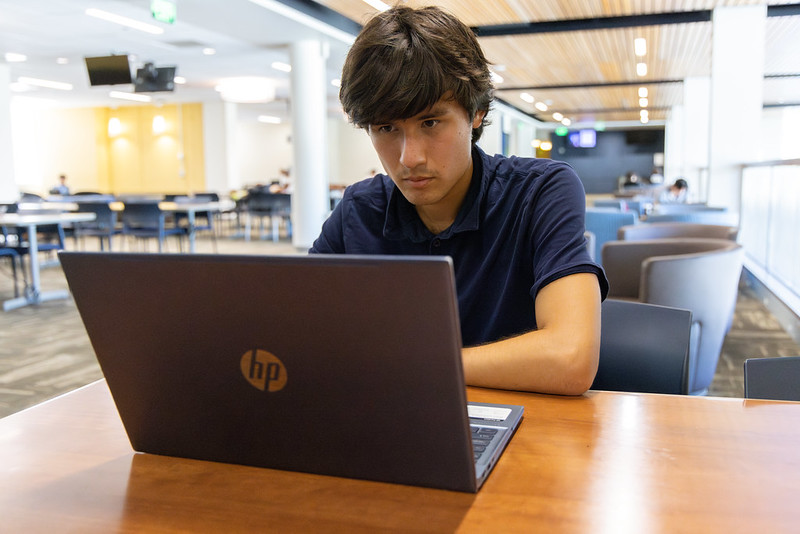
With the help of dual enrollment, a 20-unit course load, summer classes and college units from high school, Graeber was able to complete his undergraduate degree in two years. Yet, he didn’t feel finished.
“After two years, I didn’t feel ready to go out and get a job. There’s still more to the college experience. There’s still more to learn,” said Graeber.
Graeber has joined the lab of Associate Professor of Computer Science David Doty, whose research focuses on molecular self-assembly and computing. In the lab, Graeber will focus on dynamic size counting and work on developing algorithms that are more efficient than those currently available.
Dynamic size counting is about figuring out how many different “minicomputers,” or agents, there are. These agents are computing entities (like robots, sensors or software processes) that work together to enable fair resource sharing, efficient communication, reliable coordination and adaptability in networks where agents are simple. Without dynamic size counting, systems can fail or waste resources.
The challenge is that there is no central computer and the environment is ever-changing, so the minicomputers must work together and “talk” to each other to find a number. Ant colonies interact similarly to these agents. Ants will keep track of one another and use those encounters to estimate colony size, which informs whether they should stay and forage or move their colony.
Graeber’s goal is to design an algorithm that makes this kind of counting more efficient and reliable than current methods.
“It is interesting because usually you have one computer that does everything,” said Graeber. “Here you have a bunch of different computers, so it’s kind of like a fun puzzle. It’s one of the newer and more unique concepts out there.”
Pushing Past Limits
Graeber feels positive about embarking on research. One thing that racing has taught him is that it probably isn’t always going to be perfect, but if you don’t try to test your limits, then you don’t grow. Staying in one lane gets you nowhere.
“I’m not afraid of failure, I’d rather take a class I’m more interested in, even if it may be a little out of my comfort zone and even if my grade isn’t that good,” said Graeber. “It’s like in cross-country or track, you have bad races. But at the end of the day, if you always stay in your comfort zone, you’re not going to improve.”



